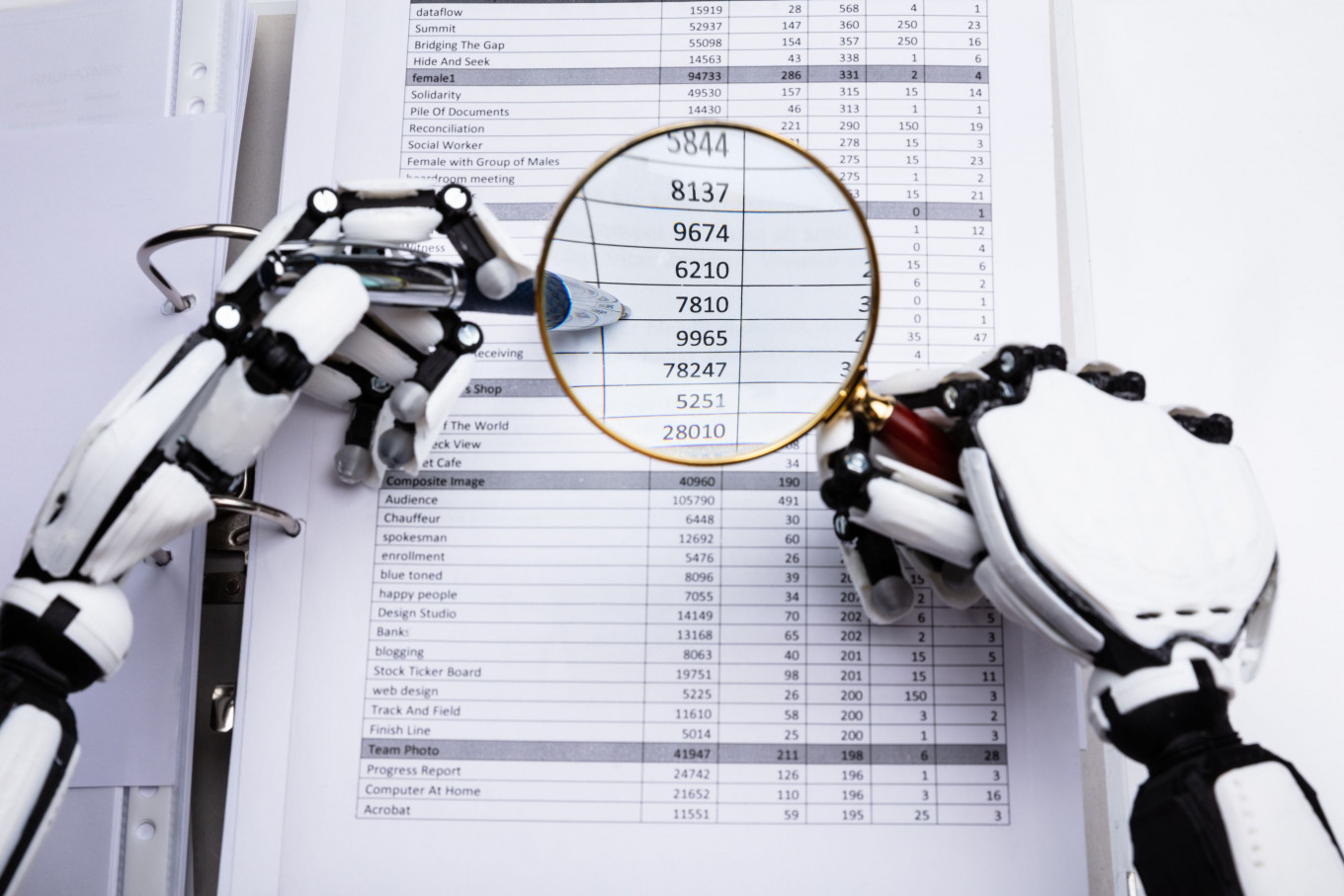Popular Reads
Top Results
Can't find what you're looking for?
View all search resultsPopular Reads
Top Results
Can't find what you're looking for?
View all search resultsWill the accounting profession survive technological advances?
Ten years ago, opening bank accounts required customers to meet the frontliner staff directly. Today, such services are available at our fingertips thanks to tech advancement.
Change text size
Gift Premium Articles
to Anyone
D
isruptive technologies such as robotic process automation, artificial intelligence (AI), blockchain and advanced analytics are taking over the role of humans in completing repetitive and mundane tasks. This is a clear sign that jobs requiring few cognitive skills are ceasing to exist.
Accounting is no exception. Working in accounting today is different from working in accounting 10 years ago. For example, one job that accounting graduates aspire to is bank work. Ten years ago, opening bank accounts required customers to meet frontline staff directly. Today, such services are available at our fingertips thanks to tech advancement.
Other accounting work areas are auditing, tax preparation and payroll. According to some research, the aspects of the work in these fields, which are time-consuming and routine, have also shifted to full automation, leaving more time for investigative jobs for humans.
For example, a 2015 study conducted by PricewaterhouseCoopers found that accountants, especially accounting clerks and bookkeepers, were the most at-risk jobs to automation in the next 20 years. As might be expected, the reason is that robotics are more effectively and accurately able to perform simple and menial tasks than humans.
These results are consistent with the research conducted by Oxford University in collaboration with National Public Radio (NPR). Through an interactive tool they investigated the disruptive implications of technology for professional services employees. The results show that more than 90 percent of accounting and auditing jobs will be automated in the next 20 years. For some tax-preparation roles, the likelihood of job automation even reaches almost 99 percent.
What is even more nerve-wracking is research evidence that recent advances in AI and machine learning have successfully created algorithms capable of outstripping white-collar workers.
For example, researchers from the Brookings Institution used a novel technique developed by a Stanford University researcher to investigate the disruptive effect of AI on jobs in 22 major occupational groups. They found that the disruptive effect of AI is targeting the white-collar professional class and not blue-collar workers. The business occupational group is the fifth-highest position on the list.
Technological disruption also has an impact on the sustainability of traditional face-to-face education. In 2017 Professor Clayton Christensen of Harvard Business School estimated that half of the 4,000 tertiary institutions in the United States will close in 10 to 15 years, disrupted by online education.
Yet, the key issue is how to ensure graduates can survive in the midst of such great technological developments. Thus, the fundamental question here is what should a business school do to prepare its graduates to survive?
Let us take a quick look at the history of accounting and the profession to answer this question properly.
Evidence of accounting as the language of business can be traced back to the Mesopotamian civilization thousands of years ago. However, it was Luca Pacioli, an Italian monk, who laid the foundation for modern accounting by explaining the double-entry system of bookkeeping, a core concept of accounting that continues to be used today, through his seminal book entitled Summa de Arithmetica, Geometria, Proportioni et Proportionalita, printed in 1494. Formal professional accounting associations were then born in the 1800s with the emergence of actual practices of accounting and bookkeeping in that era. History proves that accounting continued to adapt to technological developments, including the use of machine tools in late 1890s, long before computers were invented.
The challenges for the accounting profession this time, however, are different from challenges in previous eras. Currently, accounting is facing unprecedented challenges that can threaten the existence of the profession itself.
Back to the main questions, what should business schools do? Quoting Professor Vernon J. Richardson from the University of Arkansas, “accounting educators must revolutionize the accounting curriculum to produce accounting graduates with an analytical mindset". His colleague, Ryan Decker, wrote that the analytics mindset includes asking the right questions, extracting, transforming and loading relevant data, applying appropriate data analytics techniques, and interpreting and sharing the results with stakeholders.
A number of business schools around the world have responded by integrating advanced analytics courses into their accounting programs. As summarized in Abigail Zhang, Jun Dai and Miklos Vasarhelyi’s article, Southwestern University of Finance and Economics, China has developed an undergraduate program that focuses on business analytics in accounting. Singapore Management University has opened a master's program in accounting data and analytics. The University of Waterloo in Canada integrates a basic curriculum of analytics with its undergraduate and graduate programs, and Queen Mary University in the United Kingdom teaches undergraduate students the use of mathematics and statistics to discover patterns in finance and accounting areas.
What about business schools in Indonesia? It is time to realize the importance of including data analytics into the accounting curriculum so that our future accountants have sharp technological skills to analyze data. Such expertise is imperative for accountants to be able to provide relevant input to the stakeholder’s decision-making process, something that technology is not able to provide, at least not in the near future.
In conclusion, the accounting profession will not become extinct if accountants are able to take advantage of technological advances to support their professional work as the profession has successfully proven for centuries. What will become extinct are accountants who do not equip themselves with skills that are not offered by advances in technology. This is where business schools play a prominent role. If business schools fail to keep up with the rapid technological developments, the accounting profession potentially may face the threat of extinction.
***
The writer is a lecturer at the Accounting Study Program, Faculty of Business, Sampoerna University with a PhD in Commerce from the Australian National University. The views expressed are his own.










